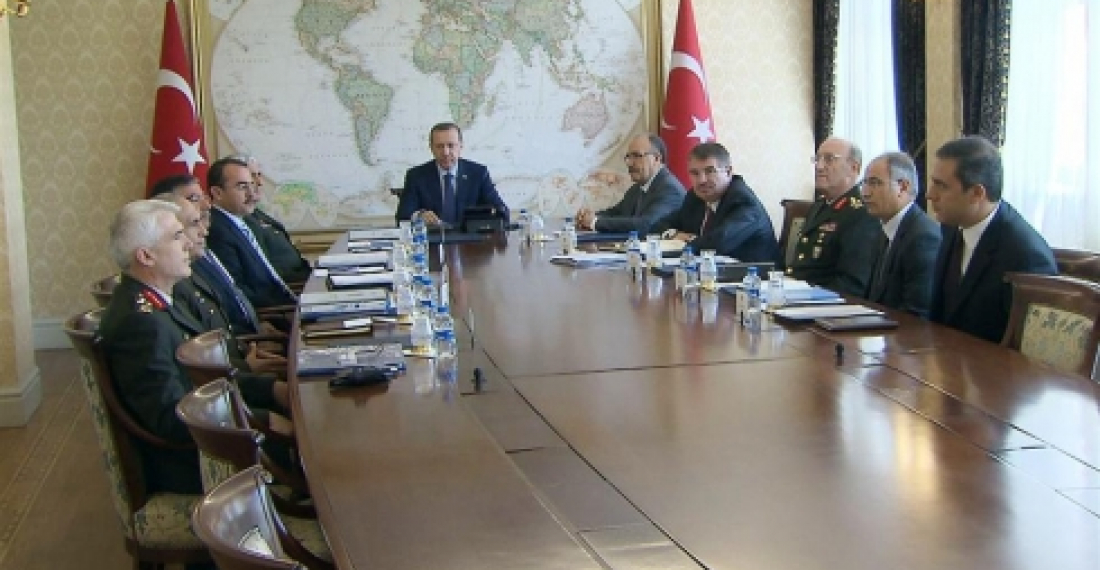Turkey's Prime Minister Recep Tayyip Erdogan, yesterday chaired a three hour meeting of his security team to discuss an escalating security situation in the country's Kurdish populated regions. The meeting took place only hours after the country's Supreme Military Council, which the Prime Minister also chairs, filled the vacancies created last week with the resignation of the Chief of Staff of the Armed Forces, and the heads of the Army, Navy and Air Force.
The resignations came at the end of a period of stand-off between the military and the civilian government headed by Erdogan. Emboldened by his recent re-election victory Erdogan had refused the recommendations of the senior military command to promote officers who were implicated in planning a coup against the civilian government in 2003, and in later attempts to undermine the AK Party administration. Forty one Generals or former Generals, and many other senior officers, are at the moment behind bars in connection with investigations around these plots.
Whilst some in Turkey saw the resignations as a serious moment of crisis, Erdogan used the situation to assert, probably for the first time since Ataturk, the control of the civilian government over the Armed Forces. The government used the scheduled meeting of the Supreme Military Council to quickly fill the vacancies, and to proceed with further promotions in the military which even government critics admit showed that the "established rules of succession were not profoundly shaken". Thus whilst standing firm, Erdogan has also been able to defuse the crisis and to ensure the support of the military in the face of an increasing security threat in the country's southeast.
There have been several serious incidents in the predominantly Kurdish poplulated regions since the Parliamentary elections in June. A number of independent MPs elected in the Kurdish areas have been denied their parliamentary mandates, and some have been jailed, for supporting the PKK, considered by the Turkish government as a terrorist organisation. There have been a number of serious PKK attacks since, which have left many Turkish soldiers dead or wounded.
Turkey is playing an increasingly important role as a regional power in the Middle East and the in Caucasus. Erdogan's victory is likely to help consolidate the government's position of zero problems with neighbours and increasing use of Turkish "soft power" in projecting Turkish influence in the region. Erdogan however faces a number of immediate challenges in this regard also, including an ongoing crisis in Syria and a failure to unblock problems with Armenia.
This week's standoff with the military also overshadowed problems in the economic sphere which on Wednesday saw the Turkish Central Bank intervening to protect the Turkish lira in the face of ongoing global economic problems and a widening gap in the Turkish current account balances.
prepared by the newsroom of commonspace.eu
photo: Prime Minister Erdogan chairing a meeting of his security team in Ankara yesterday (4 August 2011) Photo courtesy of the Press Office of the Prime Minister of Turkey
(c) commonspace.eu







